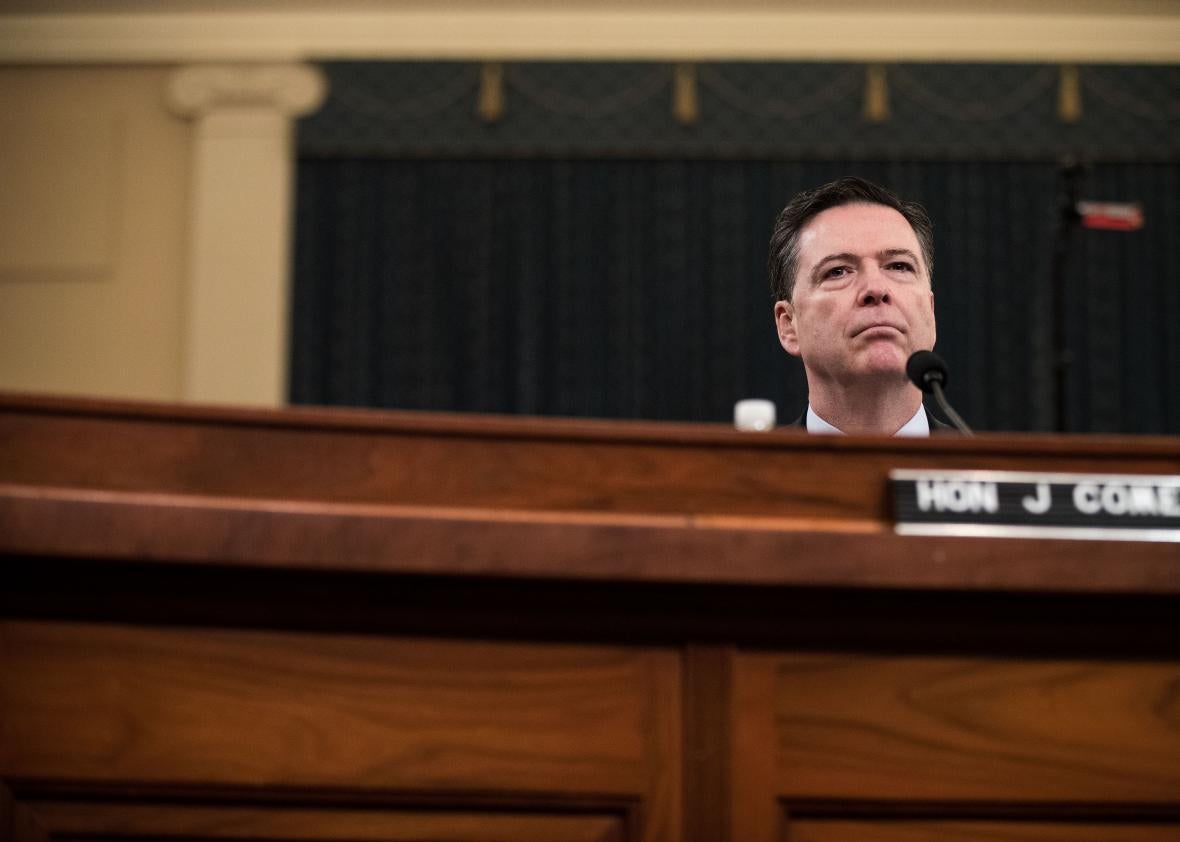The Washington Post delivered yet another bombshell about the Russia investigation on Monday night, with Adam Entous and Ellen Nakashima reporting that at some point before the May 9 firing of James Comey, senior White House officials “sounded out top intelligence officials about the possibility of intervening directly with Comey to encourage the FBI to drop its probe of Michael Flynn.” One official told the Post that the line of questioning from the White House amounted to, “Can we ask him to shut down the investigation? Are you able to assist in this matter?”
This is a significant scoop for at least two reasons. First, it adds to what we already know about a possible pattern of justice obstruction aimed at interfering with the FBI’s Russia investigation. Second, it suggests that Trump—who pressured Comey to go easy on Flynn in a private meeting at the White House—wasn’t the only member of his administration who took concrete steps to try to quash the Flynn probe.
What’s strange is that the Post buried this news in the 13th paragraph of its story, choosing instead to focus on something else. To be sure, the “something else” was also hugely important: According to the Post’s sources, Trump asked his director of national intelligence and the head of the National Security Agency to “publicly deny” that his campaign had colluded with the Russian government. But it’s worth remembering how shocking it was, last week, to learn from the New York Times that Trump had encouraged Comey to stop pursuing Flynn. Though it does feel like ancient history at this point, it was unmistakably a turning point in the Russia story, prompting lawmakers to start talking seriously about obstruction of justice and impeachment, and adding pressure on Deputy Attorney General Rod Rosenstein to name a special counsel to take over the Russia investigation.
What we now know thanks to the Post is that Trump’s conversation with Comey was just one part of a broader White House campaign to shut down the FBI’s investigation into Flynn—one that also involved members of his administration trying to enlist “top intelligence officials” in the effort.* And while Trump’s attempts to get credible people to publicly vouch for him certainly adds to the case for obstruction, it’s a secondary data point, and one that follows reporting from February about the White House asking the FBI to “knock down” reports of possible wrongdoing by members of the Trump team.
In Monday’s Post story, a former general counsel at the CIA is quoted as saying that Trump’s attempts to involve intelligence officials in the White House’s media campaign against the FBI “echoes” Richard Nixon’s “unsuccessful efforts to use the CIA to shut down the FBI’s investigation of the Watergate break-in on national security grounds.” This is a loaded connection to draw, since those efforts by Nixon—once they were revealed in an audio recording—led to his eventual resignation. It’s a pretty good analogy, and one that seems to support the Post’s decision to put Trump’s clumsy PR maneuvers in the first paragraph of its story. But the behavior described in the 13th paragraph—the White House’s attempt to shut down an investigation, not just convince important people to throw cold water on it—makes for a more direct, and more damning, comparison.
*Update, May 23, 2017: This sentence has been updated to clarify that Trump had the conversation with Comey, not Flynn.
